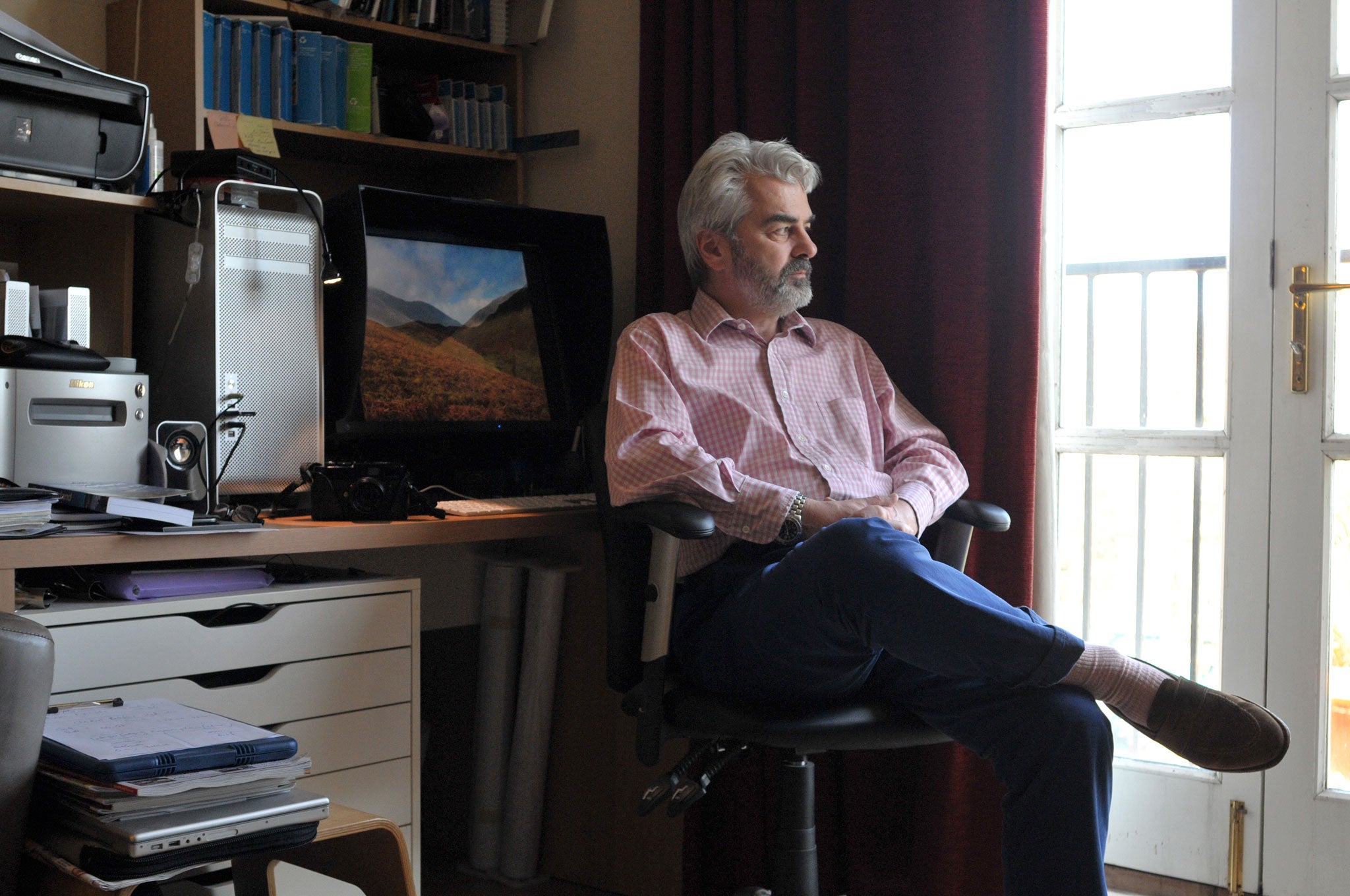In The Studio: Peter Fraser, photographer
'The luminosity of Flemish portraits and still-lifes attracted me'

Your support helps us to tell the story
From reproductive rights to climate change to Big Tech, The Independent is on the ground when the story is developing. Whether it's investigating the financials of Elon Musk's pro-Trump PAC or producing our latest documentary, 'The A Word', which shines a light on the American women fighting for reproductive rights, we know how important it is to parse out the facts from the messaging.
At such a critical moment in US history, we need reporters on the ground. Your donation allows us to keep sending journalists to speak to both sides of the story.
The Independent is trusted by Americans across the entire political spectrum. And unlike many other quality news outlets, we choose not to lock Americans out of our reporting and analysis with paywalls. We believe quality journalism should be available to everyone, paid for by those who can afford it.
Your support makes all the difference.Peter Fraser is a major British photographer, whose importance has been acknowledged by the Photographers' Gallery, London, which staged a 20-year survey of Fraser's work in 2002. He was shortlisted for the Citibank Photography Prize in 2004 and counts among his students Wolfgang Tilmans and Jeremy Millar.
We are sitting today in his comfortable sitting room in south-east London, where he works and lives with his second wife, a therapist. The room, like so many live- and work-space environments is dominated by work – in this case an impressive set up of computer and printers and desk at one end of the room.
I am immediately drawn to one of his photographs – a deceptively simplistic still life of a basket of grapes and apples. What captivates the eye is the detail – the bloom of the grapes and the blush of the cheeks of the apple. Fraser declares that this is the quality of the prints he has been making with a pigment printer and has completely transformed his working process, making him discard previous work in the series. "It was seeing the purple of a beetroot or red cabbage," he says earnestly, "I knew this was something different".
Fraser's choice of still-life as a subject is not surprising; he lived in Holland for several years, earning a living washing dishes in a hospital while spending his free time in museums. "There was not a lot of photography to look at, so I spent my time looking at 15th-century Flemish painting of landscapes and still-life. It was the luminosity of the portraits and still-lifes that attracted me."
Fraser, born in 1953, had his first solo show in York in 1982, although he admits that it was only fairly recently that he was making a living from photography. He started his photographic career in Hebden Bridge after returning from Holland before landing up in Manchester. There he completed his first set of gritty urban landscapes, the subject of his first exhibition. I suggest that the subject matter was semi-documentary and he says "No, I am not a documentary photographer," leaving me to explain that whether he agrees or not, the early works together provide a documentation of a time of urban grittiness. He admits that "artists make propositions in their work".
Fraser is quick to confess his admiration for the American photographer William Eggleston. The two met at an opening at the V&A museum; Fraser was there with a borrowed ticket given to him by the photographer Martin Parr.
Fraser was inspired enough to pack up his possessions and go to Memphis, Tennessee. "It was not long after arriving in America that I realised I was a European and returned to England". Fraser says that Eggleston with his "ability to find beauty in the banal has changed the way we look at the world". Fraser has the same ability, albeit with European-shaped eyes.
Peter Fraser, Tate St Ives (tate.org.uk) to 6 May
Join our commenting forum
Join thought-provoking conversations, follow other Independent readers and see their replies
Comments